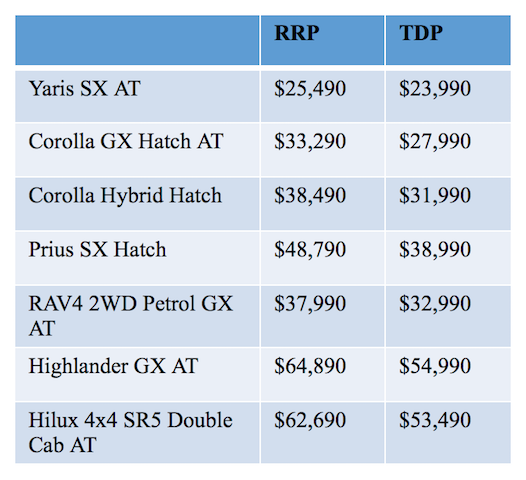
Toyota NZ’s ‘agents’ say it will take a month or so before the effects are felt from the company’s ‘Drive Happy’ project, what managing director Alistair Davis (above) has said is the “biggest change (to the way cars are sold) in a century.”
The new business model has been designed, says Davis, to do away with the long-time reputation dealerships have of practices like hard sell and haggling over price.
He said the vehicle selling process had not changed much in the past 50 years, yet most customers today were researching vehicle options online.
Toyota NZ’s website gets 12 million hits a year and the company is updating it to allow customers to research and even build the vehicle of their choice online.
“We are taking a more customer-centric approach to car buying and the entire ownership experience,” Davis said.
“We’re not alone in having made new-vehicle purchases a drawn-out affair that takes the gloss off the experience. We’ve observed and listened to customer feedback and are reshaping the buying experience.”
Gone from April 1 is the recommended retail price (RRP) of a new Toyota. It has been replaced by a haggle-free Toyota Drive Away Price (TDP) fixed by Toyota NZ. The TDP will mean savings over the RRP of thousands of dollars. See the illustration below.
Gone too is the network of ‘franchised’ Toyota dealers. Dealers are now defranchised ‘agents’ operating ‘stores’ for Toyota NZ. This restructuring allowed Toyota to put in place TDP. Trying to introduce such a fixed price practice with a franchise operation would have been anti-competitive under the Commerce Act.
Another goner is the line-up of new vehicles at Toyota stores. Instead, Toyota NZ will hang on to new stock but double the number of demonstrators at each outlet. Potential buyers can even request overnight use of the demo vehicle in familiar territory, rather than a 10-minute spin around the block with a salesman.
Once a sale is clinched, a new model will be delivered for the buyer from one of three Toyota storage centres, or hubs, in Auckland, Wellington and Christchurch. The TDP includes registration, a tank of fuel, floor mats, a capped three-year service package and the option of an extended warranty. TDP on diesel vehicles includes 1000km of road user charges.
A Toyota salesman in Auckland says it’s a bit early to tell after only a couple of days what will happen under the changes. “We will need at least a month’s trading to gauge customer reaction and the success or otherwise of the new practice,” he said. “It’s going to be different, that’s for sure.”
Managing director Davis said customer research showed that the right vehicle for the buyer’s needs was more important than the best price. “Buyers have the power in new vehicle purchases. They’ll buy when they are ready. We have to make the process as easy, transparent and welcoming as possible.”
This transition includes retraining staff at stores. From now on they are no longer sales people but ‘vehicle consultants’ and ‘product experts’. A store ‘concierge’ will be on hand too. “Our research has told us people want product specialists and not just commission-focused sales people,” said Davis.
- Toyota’s fleet and rental clients will continue to get a better deal than what TDP has to offer, because they buy many vehicles at once.
- Honda NZ introduced a similar fixed price system in 2000, called ‘Honda Price Promise’. It was based around Honda NZ itself owning all the new vehicles in its dealer network. Honda said at the time: “It’s a way of maintaining equity, transparency, consistency and value for Kiwis buying new Hondas.” But it never stopped the practice of discounting.

